|

HOME |
ABOUT |
INDEX |
NEWS |
FACEBOOK |
CONTACT
DISCRIMINATION
Inequality | Bias |
Unfair Treatment | Prejudice
Discrimination and Prejudice
Discrimination and prejudice against the LGBTQ community
have enduring and devastating effects that ripple
through every aspect of life for individuals who
identify as lesbian, gay, bisexual, transgender, queer,
or any other non-heteronormative identity. Despite
significant progress in recent years, including legal
victories and increased societal acceptance, LGBTQ
individuals continue to face systemic bias, bigotry, and
marginalization. These discriminatory attitudes not only
hinder the full realization of their rights but also
inflict profound psychological, social, and economic
harm.
At the forefront of the detrimental effects of
discrimination and prejudice is the toll on mental
health. LGBTQ individuals often experience higher rates
of depression, anxiety, and suicidality compared to
their heterosexual and cisgender counterparts. The
constant fear of rejection, harassment, and violence
takes a severe toll on their psychological well-being.
Moreover, societal stigma and discrimination can lead to
internalized homophobia or transphobia, where
individuals adopt negative beliefs about themselves,
further exacerbating mental health struggles.
In addition to mental health challenges, discrimination
and prejudice against the LGBTQ community manifest in
economic disparities. Many face employment
discrimination, wage gaps, and barriers to career
advancement solely based on their sexual orientation or
gender identity. Workplace harassment and discrimination
force some LGBTQ individuals into lower-paying jobs or
unemployment, exacerbating financial instability and
limiting opportunities for economic mobility.
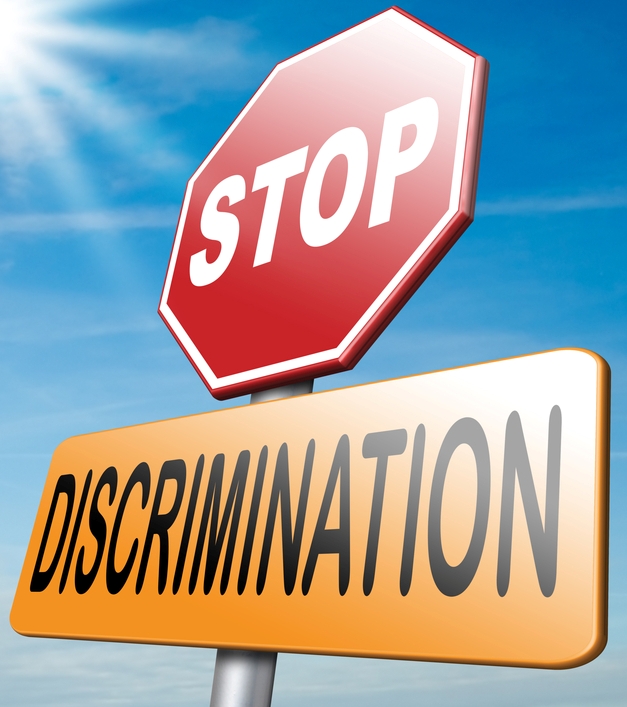
Hey You! You're Ruining this Country!
LGBTQ Map: Non-Discrimination Laws
Trans Miss
Netherlands
Winner Laments
Negative Online
Reaction
Michigan Salon
Owner Refuses to
Serve LGBTQ
Community
Because of
‘Pedophiles’
Microaggressions: What
LGBTQ People Endure Daily
Tennessee Gay Couple Rejected by Wedding
Venue Due to Owner’s Religious Beliefs
Gay, Straight, Black, White: Love is Love, Right is
Right
Sam Cooke:
A Change is Gonna Come
The effects of discrimination extend beyond the
individual level and permeate interpersonal
relationships and community cohesion. LGBTQ individuals
may face rejection from family members, peers, and
religious communities, leading to strained familial
ties, social isolation, and a lack of support networks.
This social ostracism can contribute to feelings of
loneliness and alienation, further compounding mental
health challenges.
Moreover, discrimination and prejudice contribute to
physical health disparities within the LGBTQ community.
Access to healthcare may be hindered by discrimination
from healthcare providers or insurance companies,
leading to delayed or inadequate medical treatment.
Transgender individuals, in particular, often encounter
barriers to gender-affirming healthcare, increasing the
risk of negative health outcomes and exacerbating
existing health disparities.
The impacts of discrimination and prejudice on the LGBTQ
community underscore the urgent need for comprehensive
legal protections, inclusive policies, and societal
change. Efforts to combat discrimination must extend
beyond legislative measures to include education,
awareness-raising, and advocacy initiatives aimed at
challenging harmful stereotypes and promoting acceptance
and equality for all individuals regardless of sexual
orientation or gender identity.
Discrimination and prejudice toward the LGBTQ community
inflict multifaceted harm, affecting mental health,
economic well-being, social relationships, and physical
health. Addressing these issues requires a concerted
effort from policymakers, communities, and individuals
to create a more inclusive and equitable society where
all members can live free from discrimination and
oppression.
LGBTQ Map: Non-Discrimination Laws
LGBTQ 2023: The Rising Tide
Tennessee Pizzeria Faces Backlash for Refusing to Cater
Same-Sex Weddings
Most Americans Say Religion Is No Excuse for Anti-LGBTQ
Discrimination
HRC Report: Black LGBTQ People and Compounding
Discrimination
Black LGBTQ HIV+ Americans Still Face Constant
Discrimination
Center for American Progress: Widespread
LGBTQ Discrimination
Black and LGBTQ:
Approaching Intersectional Conversations
50 Years a Scapegoat:
LGBTQ Community Once Again in GOP Crosshairs
Discrimination of Men with
Gay Voices
Queer Code Switching
Trump Erases
LGBTQ Content From Federal Websites
The
Constitution, LGBTQ Content, HIV Information, Gender
Terminology, and Spanish-Language Translations . . .
Censored From White House and Other Federal Websites...
Immediately following Donald Trump's inauguration,
diversity and inclusion language is being removed from
federal on-line platforms. Censored terms from the White
House website, for example, include "gay," "lesbian,"
"bisexual," "transgender," "gender identity," and
"sexual orientation," to name a few.
Searching for terms like "LGBTQ" and "HIV" no longer
leads visitors to find resources on government websites
for the White House (WhiteHouse.gov), the US Department
of State (State.gov), the US Department of Labor (DOL.gov),
and the US Centers for Disease & Control Prevention (CDC.gov).
These topics have been erased at the onset of President
Donald Trump's second term in office.


Trump Erases LGBTQ and HIV Content From Federal Websites
Here's How Trump's Presidency Can Affect and Erase LGBTQ
Content
What is Project 2025? And What Does it Mean for LGBTQ
Americans?
White House Removes Constitution, LGBTQ, HIV Resources,
and Spanish Language Translations From Site
"President Trump claims to be a strong proponent of
freedom of speech, yet he is clearly committed to
censorship of any information containing or related to
LGBTQ Americans and issues that we face," GLAAD's
President and CEO, Sarah Kate Ellis, wrote in a
statement. "This action proves the Trump
administration's goal of making it as difficult as
possible for LGBTQ Americans to find federal resources
or otherwise see ourselves reflected under his
presidency."
Ellis concludes, "Sadly, for him, our community is more
visible than ever; and this pathetic attempt to diminish
and remove us will again prove unsuccessful."
During his inaugural speech as the 47th president, Trump
voiced his opposition to gender-expansive identities
with a bold declaration. "As of today, it will
henceforth be the official policy of the United States
Government that there are only two genders: male and
female," Trump declared.
Additional resources that no longer appear on
WhiteHouse.gov include the site's equity report, a fact
sheet with information on expanding access to HIV
prevention and treatment, and information about LGBTQ
Pride Month. Furthermore, LGBTQ rights concerning
employment have been reportedly erased from the US
Department of State and the US Department of Labor
websites.
[Source: Bernardo Sim, Out Magazine, January 2025]
Hey You! You're Ruining this Country!
LGBTQ Map: Non-Discrimination Laws
Trans Miss
Netherlands
Winner Laments
Negative Online
Reaction
Michigan Salon
Owner Refuses to
Serve LGBTQ
Community
Because of
‘Pedophiles’
Microaggressions: What
LGBTQ People Endure Daily
Tennessee Gay Couple Rejected by Wedding
Venue Due to Owner’s Religious Beliefs
Gay, Straight, Black, White: Love is Love, Right is
Right
Sam Cooke:
A Change is Gonna Come
LGBTQ Discrimination: Subtle,
Significant, Widespread
According
to a study by the Center for American Progress,
widespread discrimination continues to shape LGBTQ
people’s lives in both subtle and significant ways.
New research from the Center for American Progress shows
that LGBTQ people across the country continue to
experience pervasive discrimination that negatively
impacts all aspects of their lives. In response, LGBTQ
people make subtle but profound changes to their
everyday lives to minimize the risk of experiencing
discrimination, often hiding their authentic selves.
1 in 4 LGBTQ people report experiencing discrimination
in 2016.
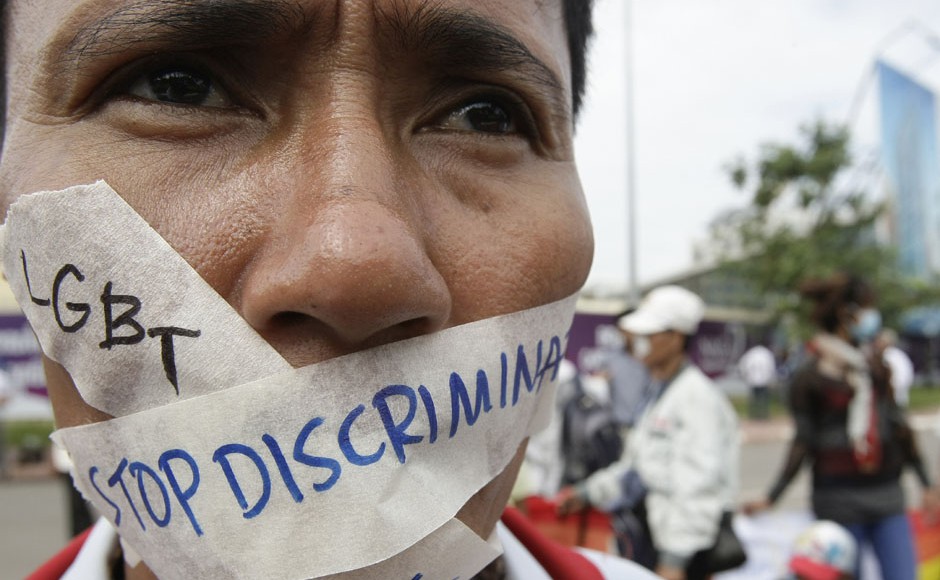
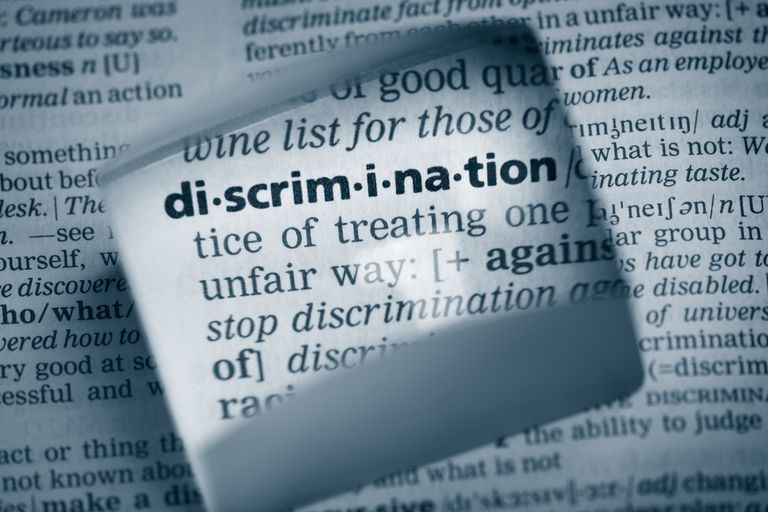
Racial Beginners
NBC News: LGBTQ Job Discrimination
Prohibited
Huff Post: LGBTQ Workplace
Discrimination
USA Today: Review of LGBTQ Equality Over
the Past Decade
Battles the LGBTQ Community is Still
Fighting
Lesbian Couple Says
School Denied Son Admission Due to Their
Sexuality
Black
LGBTQ Individuals Experience Heightened
Levels of Discrimination
Over the past decade, the nation has made unprecedented
progress toward LGBTQ equality. But to date, neither the
federal government nor most states have explicit
statutory nondiscrimination laws protecting people on
the basis of sexual orientation and gender identity.
LGBTQ people still face widespread discrimination:
Between 11 percent and 28 percent of LGB workers report
losing a promotion simply because of their sexual
orientation, and 27 percent of transgender workers
report being fired, not hired, or denied a promotion in
the past year. Discrimination also routinely affects
LGBTQ people beyond the workplace, sometimes costing
them their homes, access to education, and even the
ability to engage in public life.
Data from a nationally representative survey of LGBTQ
people conducted by CAP shows that 25.2 percent of LGBTQ
respondents has experienced discrimination because of
their sexual orientation or gender identity in the past
year. The January 2017 survey shows that, despite
progress, in 2016 discrimination remained a widespread
threat to LGBTQ people’s well-being, health, and
economic security.
Among people who experienced sexual orientation- or
gender-identity-based discrimination in the past year:
--68.5 percent reported that discrimination at least
somewhat negatively affected their psychological
well-being.
--43.7 percent reported that discrimination negatively
impacted their physical well-being.
--47.7 percent reported that discrimination negatively
impacted their spiritual well-being.
--38.5 percent reported discrimination negatively
impacted their school environment.
--52.8 percent reported that discrimination negatively
impacted their work environment.
--56.6 report it negatively impacted their neighborhood
and community environment.
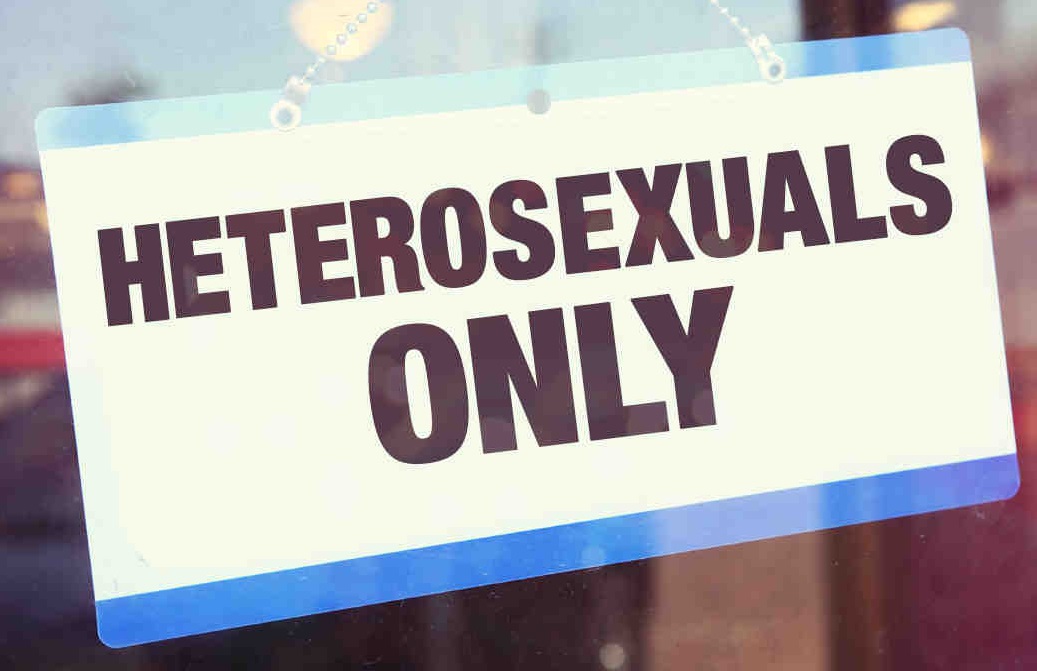
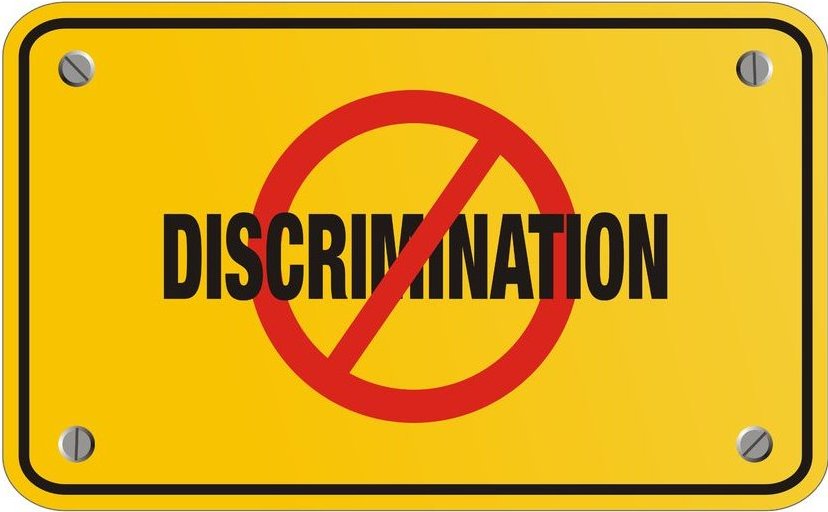
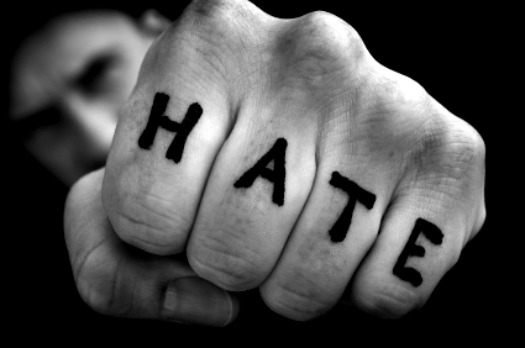
LGBTQ Map: Non-Discrimination Laws
Human Rights Watch: Anti-LGBTQ Laws
Around the World
USA Today: LGBTQ Tolerance Survey by
GLAAD
Negative Attitudes Toward LGBTQ People
NPR: Discrimination Compounds for LGBTQ
People of Color
John Oliver: LGBTQ Discrimination
ENDA: Employment Non-Discrimination Act
Lack of Trust in Law
Enforcement Hinders Reporting of LGBTQ Crimes
Countries Where Homosexuality is
Punishable by Death
Civil Rights: LGBTQ Revolution
United Nations: History of LGBTQ Rights
Trans Miss Netherlands Winner Laments
Negative Online Reaction
Tennessee Pizzeria Faces Backlash for Refusing to Cater
Same-Sex Weddings
Unseen
Harms
LGBTQ people who don’t experience overt discrimination,
such as being fired from a job, may still find that the
threat of it shapes their lives in subtle but profound
ways. David, a gay man, works at a Fortune 500 company
with a formal, written nondiscrimination policy. “I
couldn’t be fired for being gay,” he said. But David
went on to explain, “When partners at the firm invite
straight men to squash or drinks, they don’t invite the
women or gay men. I’m being passed over for
opportunities that could lead to being promoted.”
“I’m trying to minimize the bias against me by changing
my presentation in the corporate world,” he added. “I
lower my voice in meetings to make it sound less
feminine and avoid wearing anything but a black suit. …
When you’re perceived as feminine (whether you’re a
woman or a gay man) you get excluded from relationships
that improve your career.”
David is not alone. Survey findings and related
interviews show that LGBTQ people hide personal
relationships, delay health care, change the way they
dress, and take other steps to alter their lives because
they could be discriminated against.
Maria, a queer woman who lives in North Carolina,
described a long commute from her home in Durham to a
different town where she works. She makes the drive
every day so that she can live in a city that’s friendly
to LGBTQ people. She loves her job, but she’s not out to
her boss. “I wonder whether I would be let go if the
higher-ups knew about my sexuality,” she says.
CAP’s research shows that stories such as Maria’s and
David’s are common. The below table shows the percentage
of LGBTQ people who report changing their lives in a
variety of ways in order to avoid discrimination.
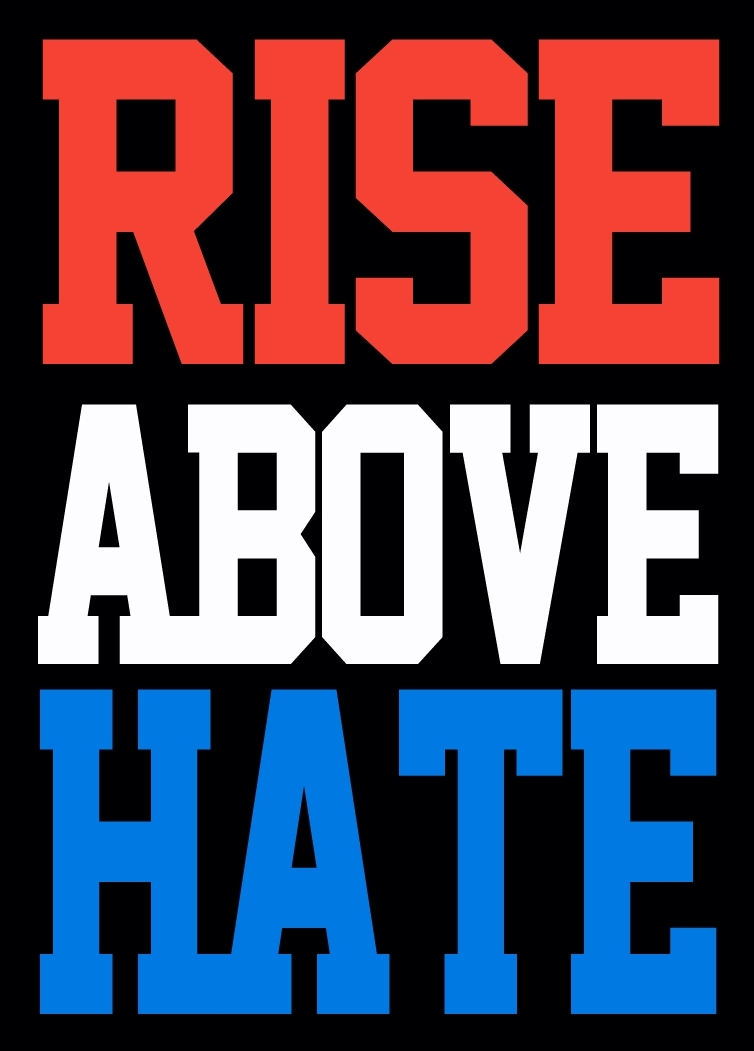
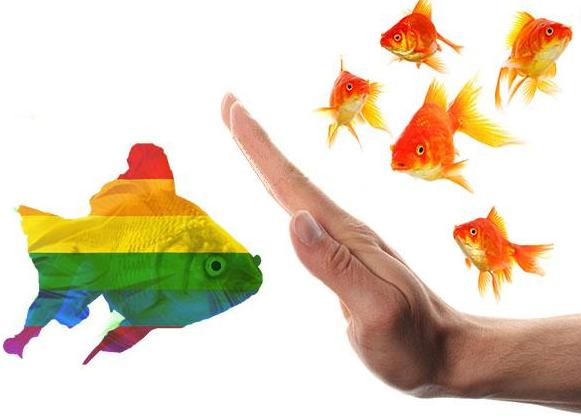
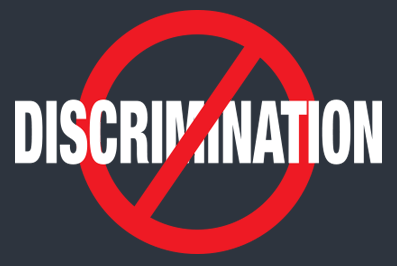
Microaggressions: What
LGBTQ People Endure Daily
Federal Court Rules Mississippi Businesses Can
Discriminate Against LGBTQ People
HRC Statistics: Growing Up LGBTQ in America
United Nations Fight Against LGBTQ Oppression
Info: LGBTQ African American Issues
How to Win LGBTQ Equality in the South
Tennessee Pizzeria Faces Backlash for Refusing to Cater
Same-Sex Weddings
LGBTQ Discrimination in Tennessee
Info: Homophobia and Heterosexism
Queer Code Switching
Unique Vulnerabilities in the Workplace
Within the LGBTQ community, people who were vulnerable
to discrimination across multiple identities reported
uniquely high rates of avoidance behaviors.
In particular, LGBTQ people of color were more likely to
hide their sexual orientation and gender identity from
employers, with 12 percent removing items from their
resumes (in comparison to 8 percent of white LGBTQ
respondents) in the past year. Similarly, 18.7 percent
of 18- to 24-year-old LGBTQ respondents reported
removing items from their resumes (in comparison to 7.9
percent of 35- to 44-year-olds). Meanwhile, 15.5 percent
of disabled LGBTQ respondents reported removing items
from their resume (in comparison to 7.3 percent of
nondisabled LGBTQ people). This finding may reflect
higher rates of unemployment among people of color,
disabled people, and young adults; it may also reflect
that LGBTQ people who could also face discrimination on
the basis of their race, youth, and disability feel
uniquely vulnerable to being denied a job due to
discrimination, or a combination of factors.
Unique Vulnerabilities in the Public Square
Discrimination, harassment, and violence against LGBTQ
people (especially transgender people) has always been
common in places of public accommodation, such as
hotels, restaurants, or government offices. The 2015
United States Transgender Survey found that, among
transgender people who visited a place of public
accommodation where staff knew or believed they were
transgender, nearly one in three experienced
discrimination or harassment—including being denied
equal services or even being physically attacked.
Hey You! You're Ruining this Country!
LGBTQ Map: Non-Discrimination Laws
Religious Liberty and Discriminating Against Gay
Homebuyers
Civil Rights: LGBTQ Revolution
Map of State Religious Exemptions Laws
Handy Guide to Understanding Religious Exemption Laws
LGBTQ Discrimination: Psychological Impact
Preschool Twins Fighting Discrimination
What Left-Handed People Can Teach the LGBTQ Community
CNN: What You Need to Know About the Gay Rights Movement
Sexual Harassment Explained
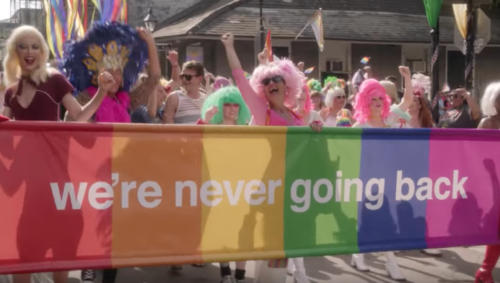
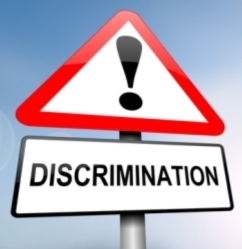
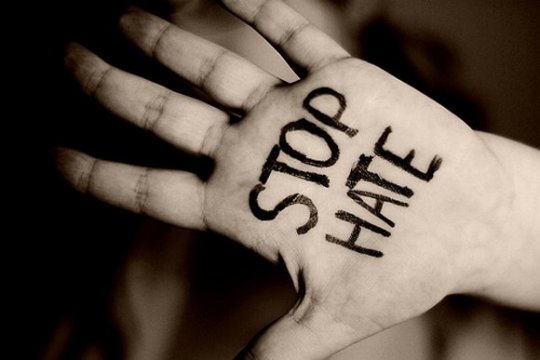
In March 2016, then Gov. Pat McCrory signed North
Carolina H.B. 2 into law, which mandated
anti-transgender discrimination in single-sex
facilities—and began an unprecedented attack on
transgender people’s access to public accommodations and
ability to participate in public life. That year, more
than 30 bills specifically targeting transgender
people’s access to public accommodations were introduced
in state legislatures across the country. This survey
asked transgender respondents whether they had avoided
places of public accommodation from January 2016 through
January 2017, during a nationwide attack on transgender
people’s rights. Among transgender survey respondents:
--25.7 percent reported avoiding public places such as
stores and restaurants, versus 9.9 percent of cisgender
LGB respondents
--10.9 percent reported avoiding public transportation,
versus 4.1 percent of cisgender LGB respondents
--11.9 percent avoided getting services they or their
family needed, versus 4.4 percent of cisgender LGB
respondents
--26.7 percent made specific decisions about where to
shop, versus 6.6 percent of cisgender LGB respondents
These findings suggest that ongoing discrimination in
public accommodations pushes transgender people out of
public life, making it harder for them to access key
services, use public transportation, or simply go to
stores or restaurants without fear of discrimination.
[Source:
Sejal Singh and Laura E. Durso, Center for American
Progress, May 2017]
Center for American Progress: Widespread
LGBTQ Discrimination
Info: Homophobia and Heterosexism
Racial Beginners
United Nations: Universal Declaration of
Human Rights
Queer Code Switching
CNN: What You Need to Know About the Gay
Rights Movement
Gay, Straight, Black, White: Love is
Love, Right is Right
Wikipedia: LGBTQ Employment
Discrimination
LGBTQ Rights: I Wish
LGBTQ People
Receive More Scrutiny, Negativity From Police
According to a recent study, lesbian, gay, bisexual,
transgender and queer people are more likely to be
stopped by police than the general population.
Queer people are six times as likely than the general
population to be stopped by police, according to a new
study, which provides evidence to back up the long-held
belief that the community is over-policed.
Researchers at the Williams Institute at the University
of California, Los Angeles, School of Law, looked at
data from the Generations Study — a long-term study of
three generations of lesbian, gay, bisexual, and queer
people — and the Police Public Contact Survey. The data
did not include transgender people, but the Williams
Institute noted that trans folks, especially women of
color, often have negative experiences with police.
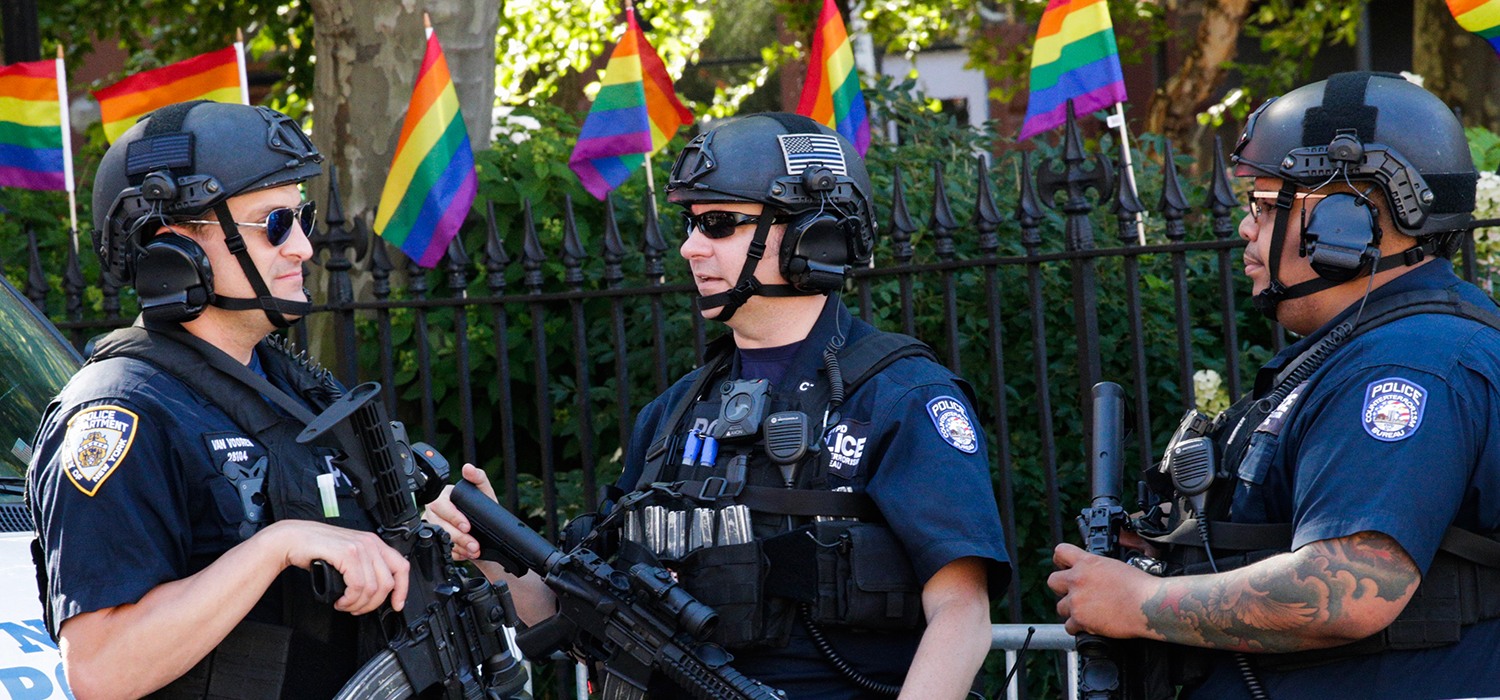
LGBTQ Rights: I Wish
Wikipedia: LGBTQ Employment
Discrimination
CNN: LGBTQ Employees Protected Against
Discrimination
LGBTQ Community and Police
Brutality
Tennessee Pizzeria Faces Backlash for Refusing to Cater
Same-Sex Weddings
United Nations: Universal Declaration of
Human Rights
Battles the LGBTQ Community is Still Fighting
Philadelphia: The Essence of Discrimination
Lesbian Couple Says
School Denied Son Admission Due to Their
Sexuality
Six percent of LGBTQ people reported having been stopped
by police in a public space versus 1 percent of the
general population, the Williams Institute reports.
Nearly seven times as many LGBTQ people were stopped by
the police for reasons other than those involving a
vehicle, and about twice as many LGBTQ people reported
seeking police help compared to the general population.
LGBTQ people also reported more frequent police stops in
vehicle-related matters, whether as a driver or
passenger, and in traffic accidents. “The findings were
similar across sex and race,” according to the study.
“The much higher rates of LGBTQ adults reporting being
approached by the police is consistent with the idea
that LGBTQ people are over-policed and raises the issue
of bias-based profiling of queer communities in
general,” the Williams Institute notes.
The institute found that most people, both LGBTQ and in
the general populace, were satisfied with police
response. “But compared with the general population,
fewer LGBTQ adults agreed that police behaved properly
during their contact,” 81 percent versus 91 percent, the
report says. In particular, fewer women in the LGBTQ
group called their interactions with police
satisfactory. And 22 percent of LGBTQ people said they
were unlikely to contact police again, while only 6
percent of the general population did.
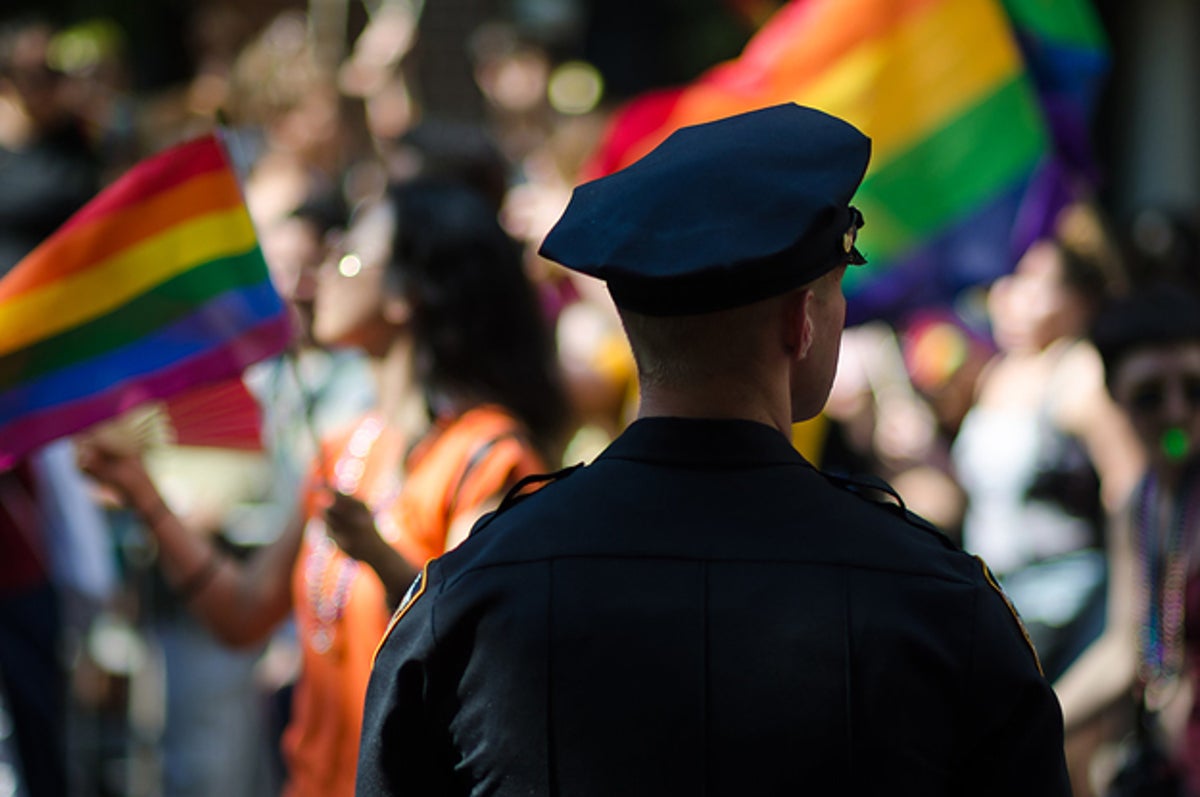
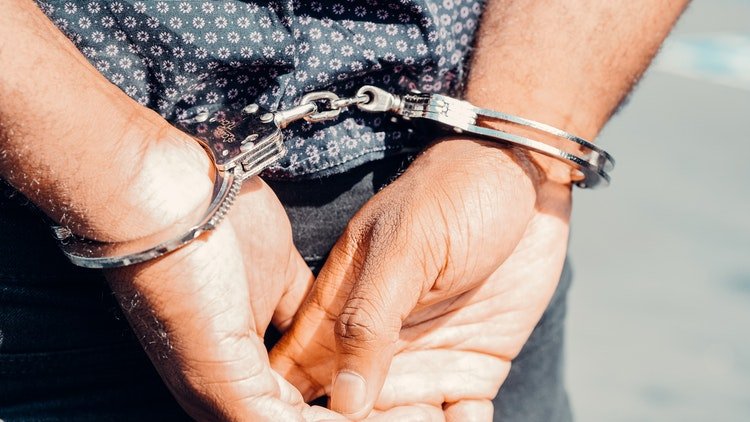
LGBTQ Map: Non-Discrimination Laws
Black
LGBTQ Individuals Experience Heightened
Levels of Discrimination
How
Discrimination Affects the LGBTQ Population
Legalizing Religious Based Discrimination
CNN: LGBTQ Employees Protected Against
Discrimination
NBC News: LGBTQ Job Discrimination
Prohibited
Countries Where Homosexuality is
Punishable by Death
Huff Post: LGBTQ Workplace
Discrimination
The lower rate of satisfaction “may reflect lower levels
of trust” in the police by LGBTQ people, because of the
perception that members of this community are targeted
as suspects or that crimes against this community are
not taken seriously, the report observes.
“Although data about transgender people were not
available in the datasets analyzed for this brief,
research indicates that transgender people, particularly
women of color, are at heightened risk of negative
police interactions, including harassment and assault,”
the Williams Institute concludes. “As police reform is
being discussed nationally, it is important that reforms
include attention to policing of LGBTQ populations
across race and gender.”
[Source: Trudy Ring, Advocate Magazine, May 2021]
LGBTQ People Receive More Scrutiny, Negativity From
Police
Trans Miss Netherlands Winner Laments
Negative Online Reaction
LGBTQ Community and Police
Brutality
Lack of Trust in Law
Enforcement Hinders Reporting of LGBTQ Crimes
Black LGBTQ Individuals
Experience Heightened Levels of Discrimination
Black LGBTQ HIV+ Americans Still Face Constant
Discrimination
Center for American Progress: Widespread
LGBTQ Discrimination
Black and LGBTQ:
Approaching Intersectional Conversations
Intersectionality
Intersectionality is a term coined by law professor
Kimberlé Crenshaw in the 1980s to describe the way that
multiple systems of oppression interact in the lives of
those with multiple marginalized identities.
Intersectionality looks at the relationships between
multiple marginalized identities and allows us to
analyze social problems more fully, shape more effective
interventions, and promote more inclusive advocacy among
communities.
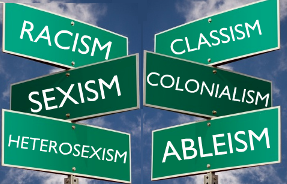
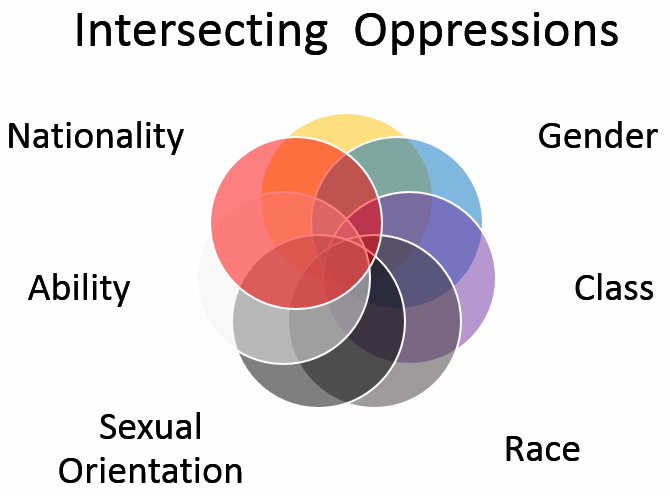
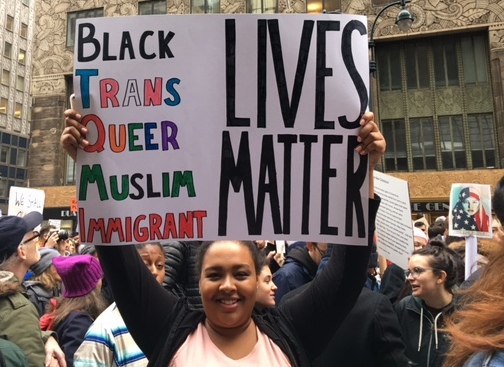
Intersectionality describes overlapping or intersecting
social identities and related systems of oppression,
domination, or discrimination. Intersectionality is the
idea that multiple identities intersect to create a
whole that is different from the component identities.
These identities that can intersect include gender,
race, social class, ethnicity, nationality, sexual
orientation, religion, age, mental disability, physical
disability, mental illness, and physical illness as well
as other forms of identity. These aspects of identity
are not "unitary, mutually exclusive entities, but
rather reciprocally constructing phenomena." The theory
proposes that individuals think of each element or trait
of a person as inextricably linked with all of the other
elements in order to fully understand one's identity.
This framework, it is argued, can be used to understand
how systemic injustice and social inequality occur on a
multidimensional basis. Intersectionality holds that the
classical conceptualizations of oppression within
society (racism, sexism, classism, ableism, homophobia,
transphobia, xenophobia, belief-based bigotry) do not
act independently of each other. Instead, these forms of
oppression interrelate, creating a system of oppression
that reflects the "intersection" of multiple forms of
discrimination.
Queer 101: What is Intersectionality?
Lady Gaga: Till it Happens
to You
Washington Post: Intersectionality Primer
Black and
LGBTQ: Approaching Intersectional Conversations
Intersectionality: Youth Panel Discusses Race, Sexual
Orientation and Gender Identity
Info: LGBTQ African American Issues
Wikipedia: Intersectionality
Info: Homophobia and Heterosexism
Racial Beginners
Washington Post: Why Intersectionality Can’t Wait
Respectability Politics: Can You Be Too Gay?
Queer Code Switching
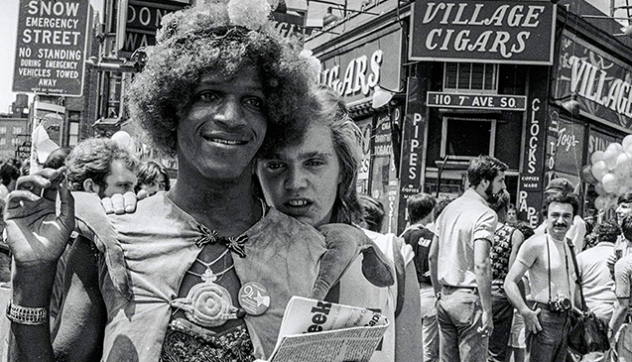
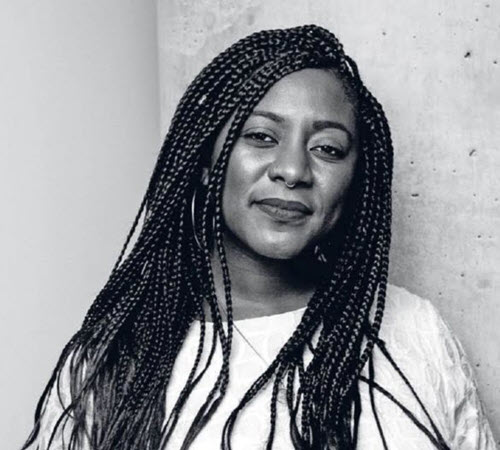
Intersectionality: LGBTQ Pride Meets BLM
The intersectionality of race and and sexual identity in the
current struggle for justice and equality reminds us
that no person can be defined simply by their skin color
or their ethnicity or their sexual orientation or their
gender identity. The overlap of experiences invites us
to recognize how much we all have in common. It's not
just about black people and LGBTQ people fighting their
separate battles, or even about the two communities
coming together. It's about black gay men, black
lesbians, black bisexuals, black transgender people, and
queer people of color fighting a battle that converges
within their own soul.
There is
an identification of a shared struggle between the
African-American and LGBTQ communities. The recent rash
of killings of black people parallels the recent rash of
killings of transgender people. The injustice
experienced by the black community mirrors the injustice
experienced by the LGBTQ community. Alicia Garza, one of
the founders of the BLM movement, is a queer woman of
color who understands discrimination as a black person
and as a queer person. It was Alicia who coined the
"Black Lives Matter" slogan. There is a real
sense of solidarity between the LGBTQ Pride movement and
the Black Lives Matter movement.
When the Covid-19 pandemic began, most LGBTQ
celebrations were canceled. But with protests across the
world drawing attention to police brutality
and the systemic racism facing the black community, many
of the organizations behind Pride festivals are
re-engaging their plans and pivoting to join the protest
movement.
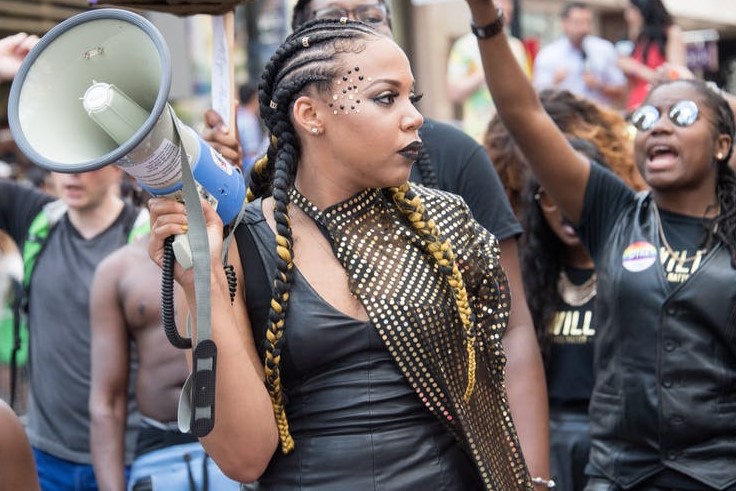
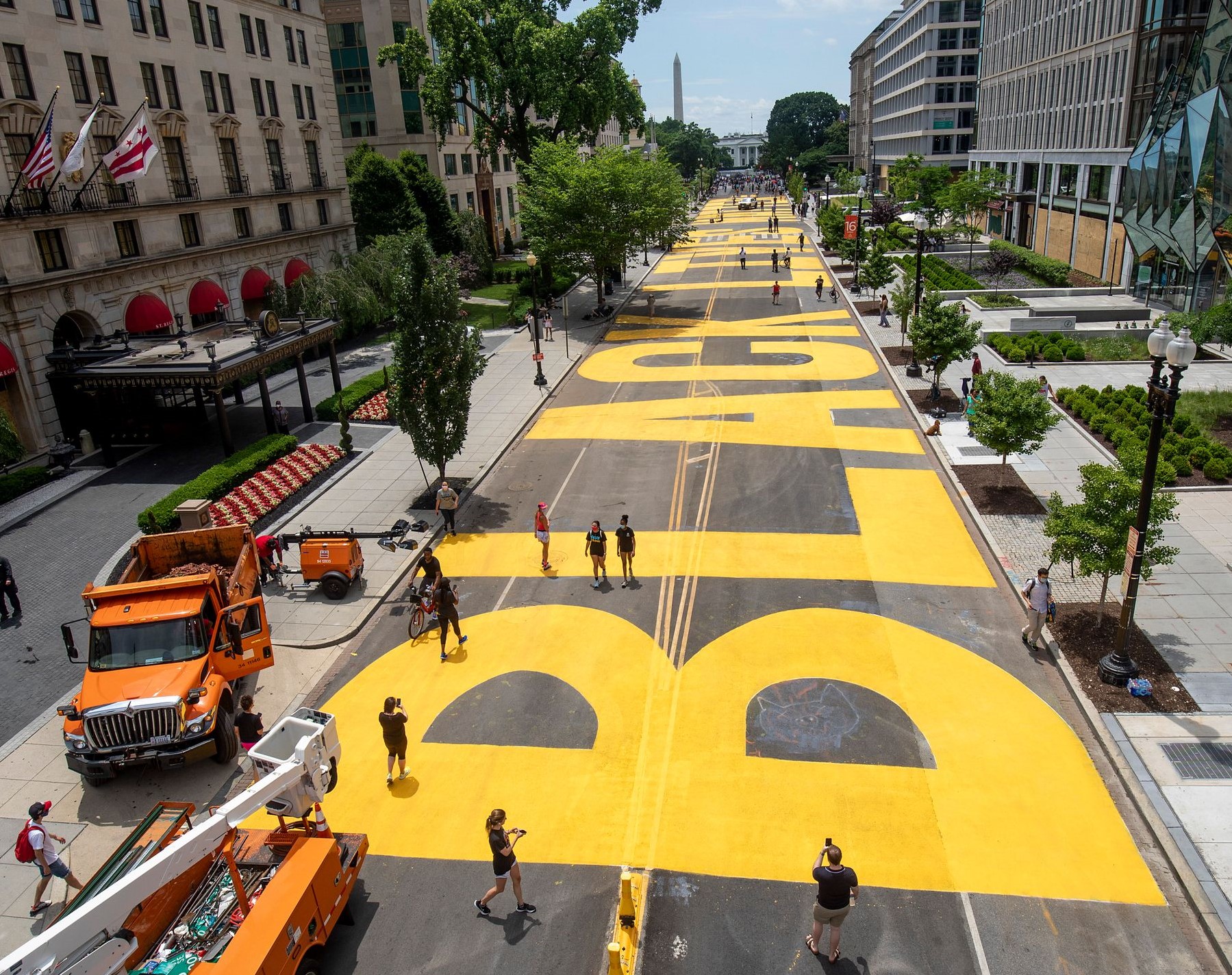
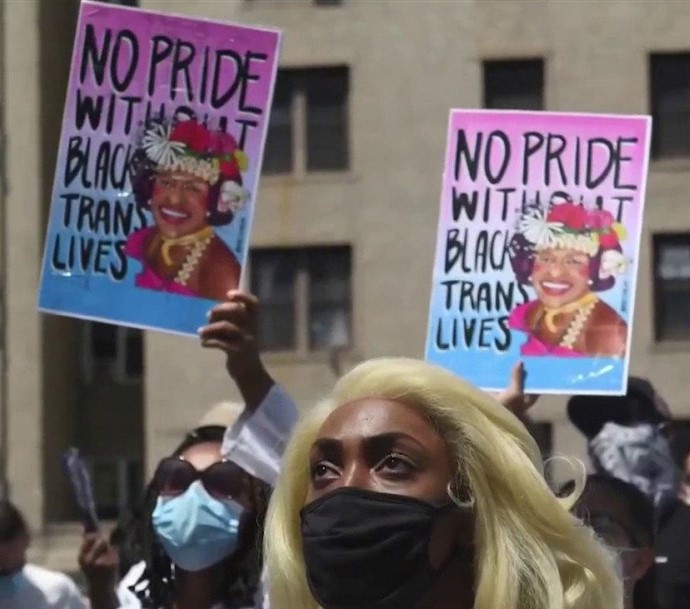
Intersectionality: Insights From a Queer Man of Color
Black LGBTQ Individuals
Experience Heightened Levels of Discrimination
What Does it Mean to Be Queer and Black in America
Today?
HRC Report: Black LGBTQ People and Compounding
Discrimination
Merging of Two Movements: LGBTQ Pride and Black Lives
Matter
Violent Crimes Against
Trans People and Black People
Thousands Gather for BLM and LGBTQ Pride March
LGBTQ Pride Festivals
Become Black Lives Matter Protests
"Black
people! I love you! I love us! Our lives matter! Black
lives matter!"
-Alicia
Garza, Co-Founder of Black Lives Matter Movement,
Creator of BLM Slogan
"We affirm
the lives of Black queer and trans folks, disabled
folks, undocumented folks, folks with records, women,
and all Black lives along the gender spectrum. Our
network centers those who have been marginalized within
Black liberation movements. We are working for a world
where Black lives are no longer systematically targeted
for demise. We affirm our humanity, our contributions to
this society, and our resilience in the face of deadly
oppression. The call for Black lives to matter is a
rallying cry for ALL Black lives striving for
liberation."
-Black
Lives Matter
"In the
end, we will remember not the words of our enemies, but
the silence of our friends."
-Dr.
Martin Luther King Jr
"There is
no such thing as a single-issue struggle because we do
not live single-issue lives."
-Audre
Lorde
"Would you
ask me how I’d dare to compare the civil rights struggle
with the struggle for lesbian and gay rights? I can
compare them, and I do compare them. I know what it
means to be called a nigger. I know what it means to be
called a faggot. And I can sum up the difference in one
word: None."
-Melvin
Boozer
Info: LGBTQ African American Issues
Protest Led by LGBTQ
Support for Black Lives Matter
Solidarity: Los Angeles Pride Supports Black Lives
Matter
When Black Lives Matter
Meets LGBTQ Pride
LA Pride Revived as Black Lives Matter
Solidarity March
Putting Intersectionality
Into Practice
LGBTQ Organizations Stand
in Solidarity With Black Lives Matter
Black and LGBTQ:
Approaching Intersectional Conversations
Queer Roots of Black Lives
Matter
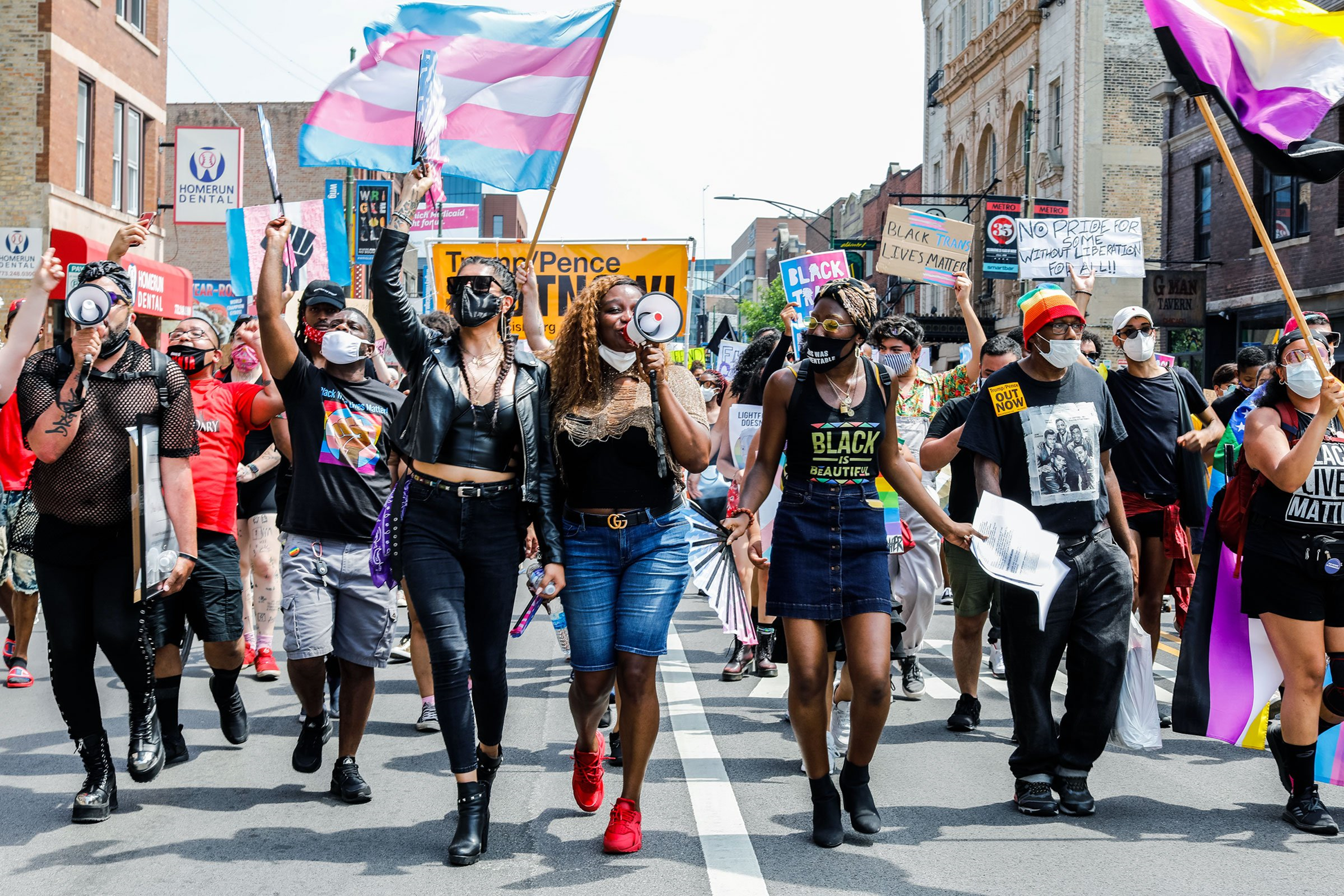
Understanding
and Combating LGBTQ Discrimination
Efforts to create a more inclusive and accepting
society...
Discrimination against the LGBTQ community remains a
pervasive issue worldwide, posing significant challenges
to the well-being and equality of individuals. Despite
considerable progress in recent years, there is still
much work to be done to eliminate prejudice, bias, and
discrimination based on sexual orientation and gender
identity.
Legal Discrimination: Many countries still have laws
that discriminate against LGBTQ individuals,
criminalizing same-sex relationships or denying them the
same rights and protections as heterosexual individuals.
These legal barriers perpetuate societal biases and
contribute to the marginalization of the LGBTQ
community.
Social Stigma: LGBTQ individuals often face social
stigma and prejudice, leading to isolation and exclusion
from their communities. Stereotypes and misconceptions
contribute to a hostile environment where individuals
may feel compelled to hide their true selves to avoid
discrimination.
Employment Discrimination: LGBTQ individuals frequently
encounter discrimination in the workplace, ranging from
biased hiring practices to unequal pay and lack of job
security. Discrimination at work not only affects the
financial stability of individuals but also takes a toll
on their mental health and overall well-being.
Violence and Harassment: Hate crimes against LGBTQ
individuals, including physical violence and harassment,
persist globally. Transgender individuals, in
particular, face a disproportionately high risk of
violence. Bullying in schools and online harassment
further exacerbate the challenges faced by LGBTQ youth.
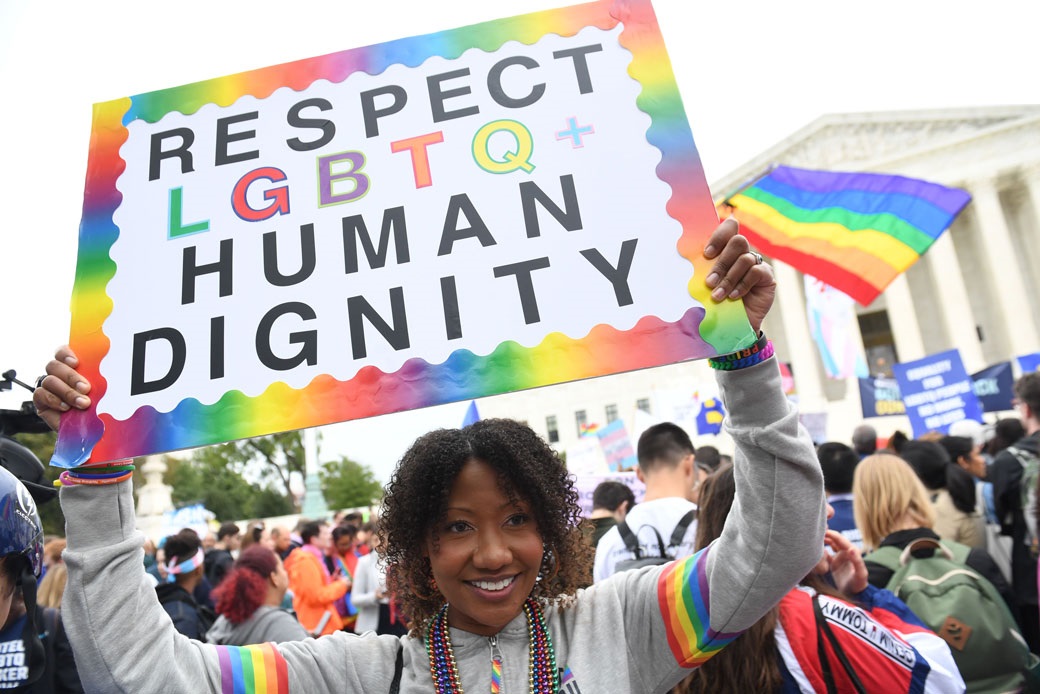
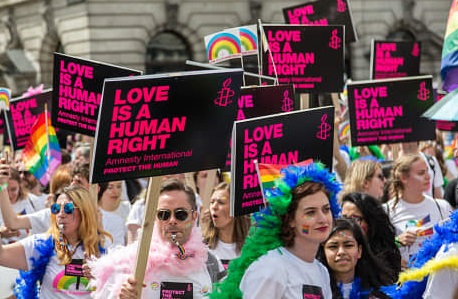
TED Talk: The Urgency of Intersectionality
HRC Report: Black LGBTQ People and
Compounding Discrimination
Privilege Walk: What is Privilege
NPR: Discrimination Compounds for LGBTQ
People of Color
50 Years a Scapegoat:
LGBTQ Community Once Again in GOP Crosshairs
Discrimination of Men with
Gay Voices
USA Today: Review of LGBTQ Equality Over
the Past Decade
Queer Code Switching
Consequences of LGBTQ Discrimination...
Mental Health Impacts: Discrimination contributes to
higher rates of anxiety, depression, and suicide among
LGBTQ individuals. The constant fear of rejection and
harassment takes a toll on mental well-being,
underscoring the importance of creating safe and
supportive environments.
Economic Disparities: Employment discrimination and
unequal opportunities can result in economic disparities
within the LGBTQ community. This, in turn, affects
access to healthcare, housing, and education,
perpetuating a cycle of inequality.
Barriers to Education: LGBTQ students often face
discrimination in educational institutions, leading to
higher dropout rates and limited access to academic and
career opportunities. Inclusive education policies and
awareness campaigns are crucial to addressing this
issue.
LGBTQ Map: Non-Discrimination Laws
Battles the LGBTQ Community is Still
Fighting
Gay, Straight, Black, White: Love is Love, Right is
Right
Sam Cooke:
A Change is Gonna Come
Center for American Progress: Widespread
LGBTQ Discrimination
Microaggressions: What
LGBTQ People Endure Daily
Black LGBTQ Individuals
Experience Heightened Levels of Discrimination
United Nations: History of LGBTQ Rights
Black and LGBTQ: Approaching
Intersectional Conversations
Wikipedia: LGBTQ Employment
Discrimination
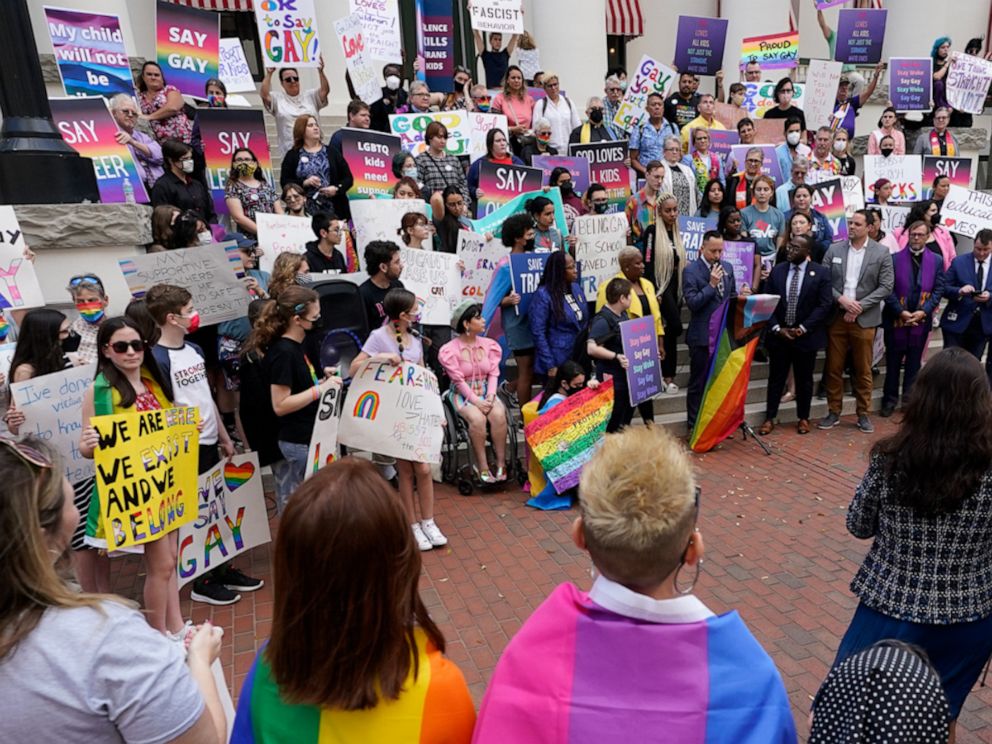
Combating LGBTQ Discrimination...
Legal Reforms: Advocacy for the repeal of discriminatory
laws and the implementation of comprehensive legal
protections is essential. The fight for equal rights on
a legislative level is an ongoing process that requires
sustained effort and collaboration.
Promoting Inclusive Education: Schools and educational
institutions play a crucial role in fostering
inclusivity. Implementing anti-discrimination policies,
inclusive curricula, and support systems can create a
more welcoming environment for LGBTQ students.
Raising Awareness: Public awareness campaigns are
instrumental in challenging stereotypes, debunking
myths, and fostering understanding. Media, community
organizations, and influencers can contribute to
changing societal attitudes by promoting acceptance and
respect.
LGBTQ discrimination remains a significant societal
challenge, impacting individuals in various aspects of
their lives. Efforts to combat discrimination must be
multifaceted, involving legal reforms, educational
initiatives, and awareness campaigns. By fostering
inclusivity and understanding, society can move towards
a future where everyone, regardless of sexual
orientation or gender identity, can live free from
discrimination and prejudice.
CNN: LGBTQ Employees Protected Against
Discrimination
How
Discrimination Affects the LGBTQ Population
Lesbian Couple Says School Denied Son
Admission Due to Their Sexuality
LGBTQ Rights: I Wish
Trans Miss Netherlands Winner Laments
Negative Online Reaction
NBC News: LGBTQ Job Discrimination
Prohibited
Huff Post: LGBTQ Workplace
Discrimination
Chick-Fil-A:
Symbol of LGBTQ Discrimination
Chick-fil-A is arguably best known for three things: its
juicy chicken sandwiches, its employees’ perpetually
chipper attitudes, and its long history of donating to
charities with anti-LGBTQ stances.
However, the fast-food chain says it is changing its
charitable giving approach in 2020. And it says, in an
oblique way, that it will no longer donate to such
organizations.
The Chick-fil-A Foundation will instead take “a more
focused giving approach,” Chick-fil-A announced in a
press release in November 2019. The foundation has set
aside $9 million for 2020 that will be split between
three initiatives: promoting youth education, combating
youth homelessness, and fighting hunger. Those funds
will be distributed to Junior Achievement USA, Covenant
House International, and local food banks in cities
where the chain opens new locations. Chick-fil-A’s
president and CEO Tim Tassopoulos made it clear that the
company’s new donation strategy is at least partly
related to the constant backlash Chick-fil-A has faced
over its donations. Notably, Chick-fil-A never
explicitly said it would permanently stop donating to
anti-gay groups or organizations that discriminate
against LGBTQ people. It just said it was changing its
philanthropic giving model.

LGBTQ Nation: Chick-Fil-A Not Quite LGBTQ Friendly
Chick-Fil-A: Controversy, Boycotts, Bad Press
Huff Post: Chick-Fil-A's Long Time Support of Anti-LGBTQ
Organizations
NBC News: Cautious Optimism Regarding Changes at Chick-Fil-A
Forbes: Chick-Fil-A Grilled From Both Sides
LGBTQ Discrimination: Chick-Fil-A and More
Background Info: Chick-Fil-A and LGBTQ Discrimination
Chick-Fil-A's Airport Controversy
Back in June 2012, following a series of public comments
opposing same-sex marriage by Dan T. Cathy, Chick-fil-A's
chief operating officer, related issues have arisen
between the international fast food restaurant and the
LGBTQ community. This followed reports that Chick-fil-A's
charitable endeavor, the S. Truett Cathy-operated
WinShape Foundation, had donated millions of dollars to
organizations seen by LGBTQ activists as hostile to
LGBTQ rights. Activists called for protests and
boycotts, while supporters of the restaurant chain, and
opponents of same-sex marriage ate there in support of
the restaurant. National political figures both for and
against the actions spoke out and some business partners
severed ties with the chain.
The outcome of the initial controversy was mixed, as
Chick-fil-A's sales rose twelve percent, to $4.6
billion, in the period immediately following the
controversy. This was largely attributed to former
Governor of Arkansas Mike Huckabee's counter-boycott
launched in support of the restaurant. However, the
company's public image and standing with the LGBTQ
community was damaged, with the chain facing criticism
and condemnation from politicians and gay rights
activists, as well as efforts by activists and political
officials to ban the restaurant from college campuses,
airports and elsewhere.
The WinShape Foundation, a charitable endeavor of Chick-fil-A
founder S. Truett Cathy and his family, stated that it
would not allow same-sex couples to participate in its
marriage retreats. Chick-fil-A gave over $8 million to
the WinShape Foundation in 2010. Equality Matters, an
LGBTQ watchdog group, published reports of donations by
WinShape to organizations that the watchdog group
considers anti-gay, including $2 million in 2009, $1.9
million in 2010 and a total of $5 million since 2003,
including grants to the Family Research Council and
Georgia Family Council. WinShape contributed grants to
the Fellowship of Christian Athletes, and Exodus
International, an organization noted for supporting
ex-gay conversion therapy. The Marriage and Family
Foundation received $994,199 in 2009 and $1,188,380 in
2010. The Family Research Council, an organization
listed as an anti-gay hate group by the Southern Poverty
Law Center in Winter 2010, received $1000.
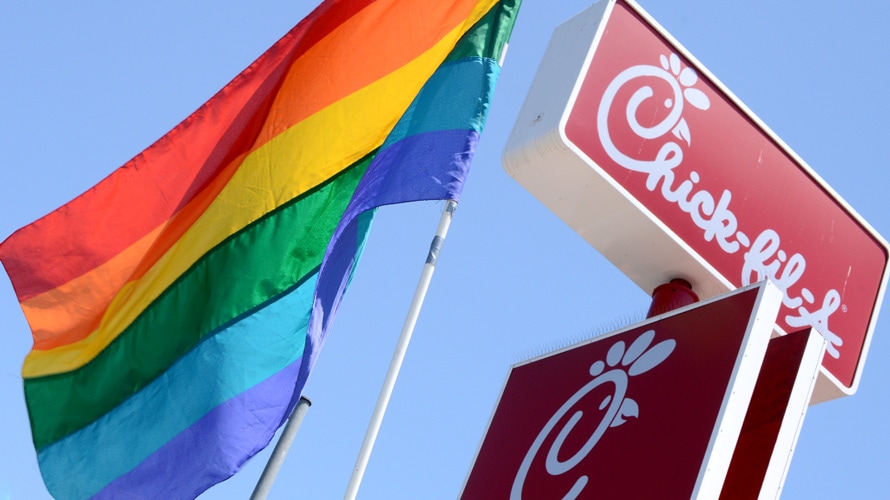
USA Today: Review of LGBTQ Equality Over the Past Decade
How
Discrimination Affects the LGBTQ Population
Info: LGBTQ African American Issues
HRC Report: Black LGBTQ People and Compounding
Discrimination
Negative Attitudes Toward LGBTQ People
ENDA: Employment Non-Discrimination Act
United
Nations: History of LGBTQ Rights
In June
2012, while on the syndicated radio talk show, The Ken
Coleman Show, Chick-fil-A president and chief operating
officer (COO) Dan Cathy stated: "I think we are inviting
God's judgment on our nation when we shake our fist at
Him and say, We know better than you as to what
constitutes a marriage. I pray God's mercy on our
generation that has such a prideful, arrogant attitude
to think that we have the audacity to define what
marriage is about."
In July 2012, Biblical Recorder published an interview
with Dan Cathy, who was asked about opposition to his
company's "support of the traditional family." He
replied: "Guilty as charged." Cathy continued: "We are
very much supportive of the family — the biblical
definition of the family unit. We are a family-owned
business, a family-led business, and we are married to
our first wives. We give God thanks for that. We want to
do anything we possibly can to strengthen families. We
are very much committed to that. We intend to stay the
course. We know that it might not be popular with
everyone, but thank the Lord, we live in a country where
we can share our values and operate on biblical
principles."
The day after the Supreme Court of the United States
struck down Section 3 of the Defense of Marriage Act,
Cathy tweeted, "Sad day for our nation. the founding
fathers would be ashamed of our generation for o
abandoning the wisdom of the ages and the cornerstone of
strong societies."
Negative Attitudes Toward LGBTQ People
NPR: Discrimination Compounds for LGBTQ
People of Color
ENDA: Employment Non-Discrimination Act
Countries Where Homosexuality is
Punishable by Death
Civil Rights: LGBTQ Revolution
United Nations: History of LGBTQ Rights
Sexual Harassment Explained
Queer Code Switching
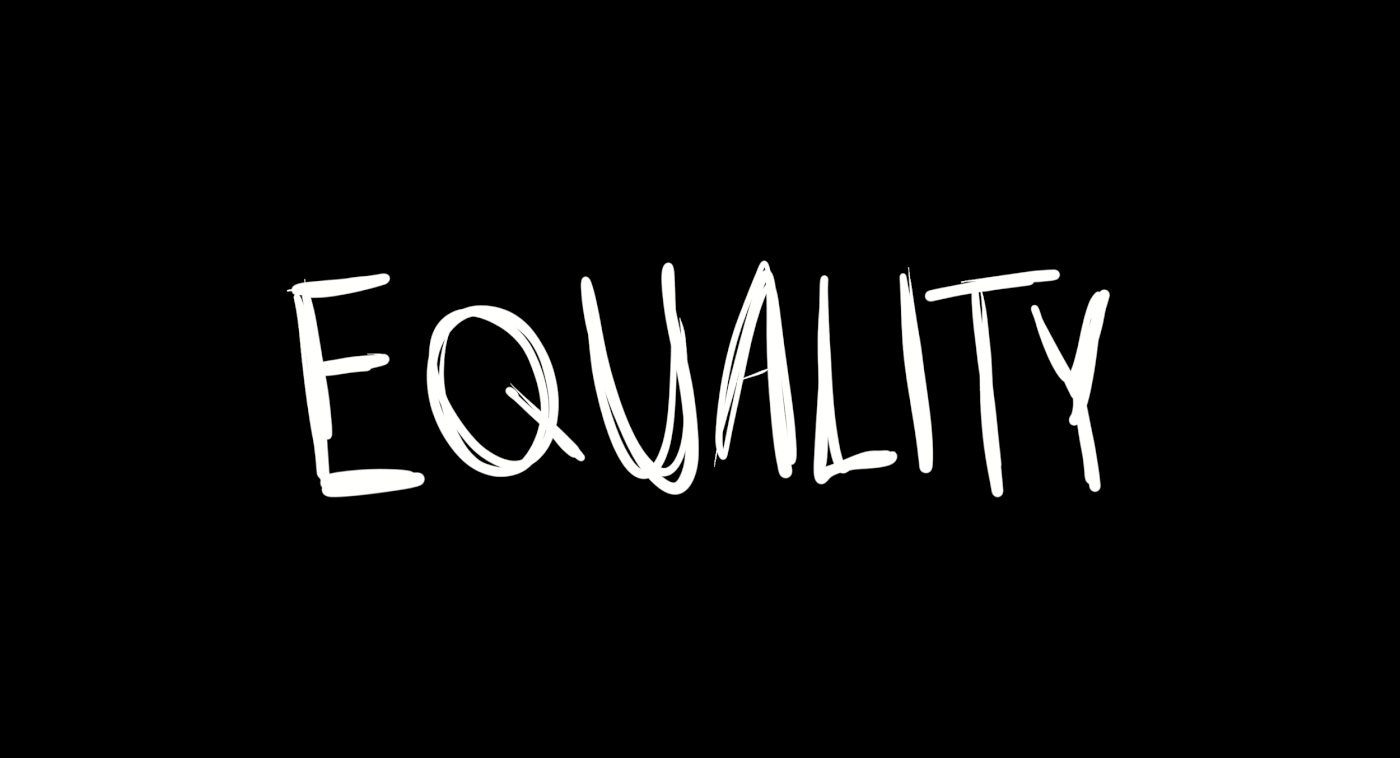
Profile of LGBTQ
Life in America
--42% of
people who are LGBTQ report living in an unwelcoming
environment.
--80% of gay and lesbian youth report severe social
isolation.
--6 in 10 LGBTQ students report feeling unsafe at school
because of their sexual orientation.
--90% of teens who are LGBTQ come out to their close
friends.
--As of 2013, 92% of adults who are LGBTQ said they
believe society had become more accepting of them than
in the past 10 years.
--Young people who are LGBTQ and who are “out” to their
immediate families report feeling happier than those who
aren’t.
--While non-LGBTQ students struggle most with school
classes, exams, and work, their LGBTQ peers say the
biggest problem they face is unaccepting families.
--As of 2015, same-sex marriage is legal in the US.
--The Don’t Ask, Don’t Tell policy, which restricted
lesbians, gays, and bisexuals in the military from
openly serving, was lifted in 2011. People who are
transgender are not permitted to serve openly yet.
--In July 2009, the Senate approved the Matthew Shepard
Act, which outlaws hate crimes based on both sexual
orientation and gender identity.
--The Employment Nondiscrimination Act, passed Congress
in 2007, is the act that prohibits discrimination of
sexual orientation in the workplace, specifically during
hiring.
Center for American Progress: Widespread
LGBTQ Discrimination
USA Today: Review of LGBTQ Equality Over
the Past Decade
Battles the LGBTQ Community is Still
Fighting
Gay, Straight, Black, White: Love is Love, Right is
Right
Human Rights Watch: Anti-LGBTQ Laws
Around the World
USA Today: LGBTQ Tolerance Survey by
GLAAD
CNN: LGBTQ Employees Protected Against
Discrimination
NBC News: LGBTQ Job Discrimination
Prohibited
Huff Post: LGBTQ Workplace
Discrimination
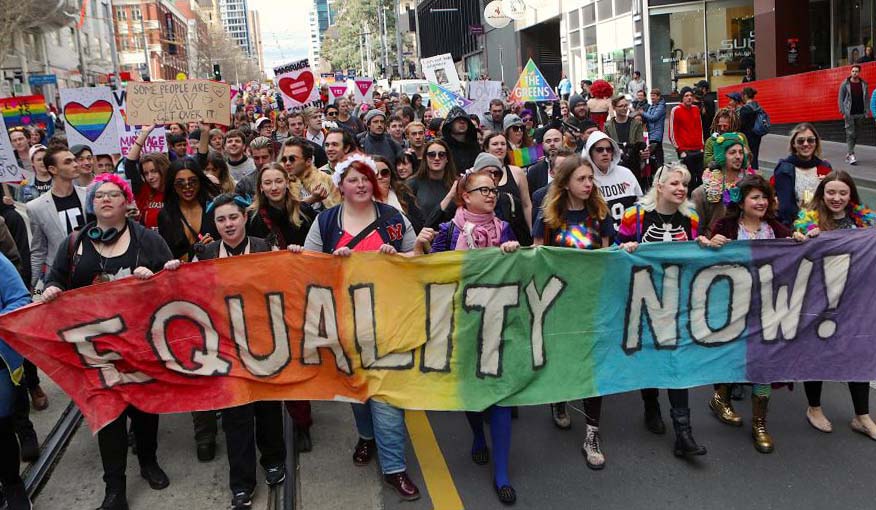
Standing Up for Equality
"People
fail to get along with each other because they fear each
other. They fear each other because they don’t know each
other. They don’t know each other because they have not
properly communicated with each other."
-Martin Luther King Jr
"The humanity of all Americans is diminished when any
group is denied rights granted to others."
-Julian Bond,
NAACP Board Chairman
"The
people who would forbid gays from marrying in the
country are those who would have made Rosa Parks sit in
the back of the bus."
-Jason West, Mayor of New Paltz, NY
"I've always felt that homophobic attitudes and policies
were unjust and unworthy of a free society and must be
opposed by all Americans who believe in democracy. The
civil rights movement thrives on unity and inclusion,
not division and exclusion. My husband's struggle
parallels that of the gay rights movement."
-Coretta
Scott King
"Courage comes when an interracial couple connects to a
gay couple who has been discriminated against, and
understands it as their own."
-President Barack Obama
Solidarity: Los Angeles Pride Supports Black Lives
Matter
When Black Lives Matter
Meets LGBTQ Pride
LA Pride Revived as Black Lives Matter
Solidarity March
Putting Intersectionality
Into Practice
LGBTQ Organizations Stand
in Solidarity With Black Lives Matter
Queer Roots of Black Lives
Matter
Racial Beginners
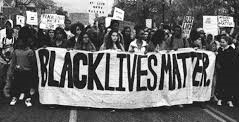
"Discrimination is discrimination no matter who the
victim is, and it is always wrong. There are no special
rights in America, despite the attempts by many to
divide blacks and the gay community with the argument
that the latter are seeking some imaginary special
rights at the expense of blacks."
-Julian Bond, NAACP Board Chairman
"At the end of the day it doesn’t matter which group is
most oppressed or whether they are identically
oppressed, what matters is that no group be oppressed."
-Keith Boykin, President of National Black Justice
Coalition
"All of us who are openly gay are living and writing the
history of our movement. We are no more - and no less -
heroic than the suffragists and abolitionists of the
19th century; and the labor organizers, Freedom Riders,
Stonewall demonstrators, and environmentalists of the
20th century."
-Senator Tammy Baldwin
“When all Americans are treated as equal, no matter who
they are or whom they love, we are all more free.”
-President Barack Obama
Intersectionality: Insights From a Queer Man of Color
What Does it Mean to Be Queer and Black in America
Today?
Merging of Two Movements: LGBTQ Pride and Black Lives
Matter
Violent Crimes Against
Trans People and Black People
Thousands Gather for BLM and LGBTQ Pride March
LGBTQ Pride Festivals
Become Black Lives Matter Protests
Protest Led by LGBTQ
Support for Black Lives Matter
Info: LGBTQ African American Issues
Defining
Homophobia and Heterosexism
Homophobia is the fear, hatred, disgust, mistreatment, or
intolerance of same-sex intimacy, relationships,
atypical gender behavior, and/or people who identify as
or are perceived as LGBTQ.
Heterosexism is the belief in the inherent superiority of
heterosexuality and, thereby, it’s right to dominance.
Carries with it the assumption that everyone one meets
is heterosexual.
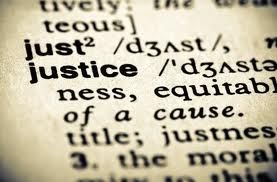
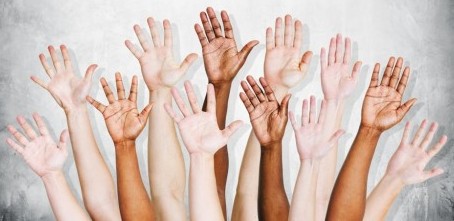
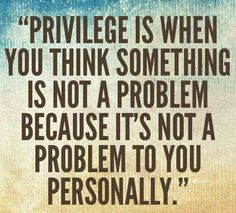
Homophobia refers to the many ways in which people are
oppressed on the basis of sexual orientation. Sometimes
homophobia is intentional, where there is a clear intent
to hurt lesbian, gay, bisexual, transgender, and queer
people. Homophobia can also be unintentional, where
there is no desire to hurt anyone, but where people are
unaware of the consequences of their actions.
Roots and Causes of Homophobia
Homophobia: Origins and Cures
An Illustration of Privilege
Battles the LGBTQ Community is Still
Fighting
Microaggressions: What
LGBTQ People Endure Daily
Info:
Black Lives Matter
Wikipedia: Heterosexism
How Privileged Are You?
HRC Report: Black LGBTQ People and Compounding
Discrimination
Civil Rights: LGBTQ Revolution
Cisnormativity
Cisnormativity is the assumption
that all, or almost all,
individuals are cisgender.
Although transgender-identified
people comprise a fairly small
percentage of the human
population, many trans people
and allies consider it to be
offensive to presume that
everyone is cisgender unless
otherwise specified.
Examples of cisnormativity are
closely linked to gender
essentialism and may include
statements like, "Men can not
get pregnant." Although
cisnormativity is rarely
deliberate, it is almost always
perceived as hurtful and
offensive to the trans
community. At best,
cisnormativity contributes to
the erasure of trans and
nonbinary experiences. At worst,
it is part of a deliberate and
calculated system of oppression
that includes institutionalized
cissexism and transphobia.
Cisnormative is a term related
to heteronormativity,
heterosexism, homophobia,
biphobia, transphobia, gender
essentialism, cissexism, and
other forms of oppression based
on sexual orientation and gender
identity.

Info: Cisnormativity
Wikipedia: Cisgender
Info:
Straight/Heterosexual
Cisnormativity is Rampant
Info:
Transgender
Hetero/Cis
Normativity in Our Society
Oppressing
Sexual Minorities
The term "sexual minority" is an expression that refers
to persons who aspire to any lifestyle or orientation
that doesn’t comply with the mainstream heterosexual
concept of normal behavior.
Heterosexism is the assumption that only heterosexual
relationships are normal and should therefore be
privileged. Heterosexism is based on societal values
that dictate that everyone is, or should be,
heterosexual.
Intentionally or unintentionally, our society privileges
heterosexuality and heterosexual persons, and devalues,
mistreats, or discriminates against lesbian, gay,
bisexual, transgender, and queer persons and those
perceived to be so.
Heterosexual privilege bestows unearned and unchallenged
advantages and rewards on heterosexuals solely as a
result of their sexual orientation. These benefits are
not automatically granted to LGBTQ persons.
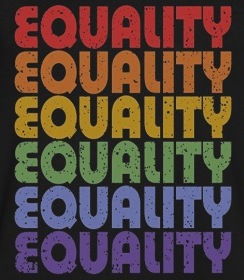
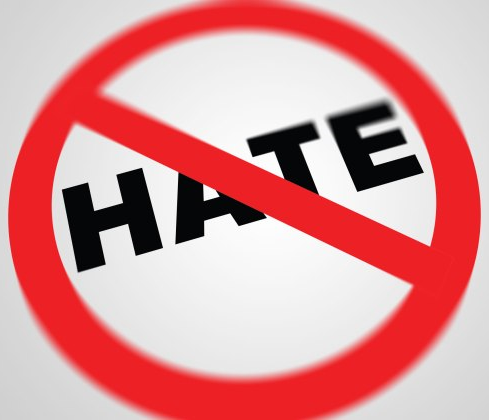
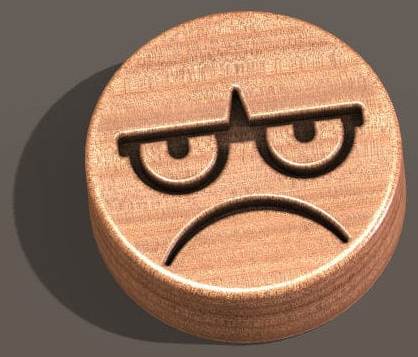
Definitions: Homophobia, Heterosexism, Sexual Prejudice
Info: Homophobia and Heterosexism
Negative Attitudes Toward LGBTQ People
United Nations Fight Against LGBTQ Oppression
Video: Therapy Session for Homophobic People
This is What Homophobia Feels Like
CNN: What You Need to Know About the Gay Rights Movement
Sexual Harassment Explained
Sexual Prejudice
Scientific analysis of the psychology of antigay
attitudes will be facilitated by a new term. Sexual
prejudice serves this purpose nicely. Broadly conceived,
sexual prejudice refers to all negative attitudes based
on sexual orientation, whether the target is homosexual,
bisexual, or heterosexual. Given the current social
organization of sexuality, however, such prejudice is
almost always directed at people who engage in
homosexual behavior or label themselves gay, lesbian, or
bisexual.
Like other types of prejudice, sexual prejudice has
three principal features:
--It is an attitude (an evaluation or judgment).
--It is directed at a social group and its members.
--It is negative, involving hostility or dislike.
Conceptualizing heterosexuals' negative attitudes toward
homosexuality and bisexuality as sexual prejudice (rather than homophobia) has several advantages.
First,
sexual prejudice is a descriptive term. Unlike
homophobia, it conveys no a priori assumptions about the
origins, dynamics, and underlying motivations of antigay
attitudes.
Second, the term explicitly links the study of antigay
hostility with the rich tradition of social
psychological research on prejudice.
Third, using the construct of sexual prejudice does not
require value judgments that antigay attitudes are
inherently irrational or evil.
[Source: Herek, G. M.,
2000]
Roots and Causes of Homophobia
Civil Rights: LGBTQ Revolution
Microaggressions: What
LGBTQ People Endure Daily
Homophobia: Origins and Cures
An Illustration of Privilege
Video: Therapy Session for Homophobic People
United Nations: History of LGBTQ Rights
USA Today: Review of LGBTQ Equality Over
the Past Decade
Info:
Black Lives Matter
HRC Report: Black LGBTQ People and Compounding
Discrimination
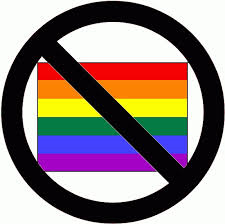
Hating Gays: Scientific Study
Social scientists attempting to explain why people hold
negative feelings toward homosexual persons have tended
to offer either theoretical speculations or empirical
data, with little synthesis of the two.
The theoretical accounts often have revealed more about
the writer's personal prejudices toward homosexuality
than society's reaction to it. For example, William
James (1890) assumed that being repulsed by the idea of
intimate contact with a member of the same sex is
instinctive, and exists more strongly in men than in
women. Interestingly, in cultures where such forms of
''unnatural vice" as homosexuality are found, James
supposed that the instinctual aversion had been overcome
by habit. In other words, he assumed that tolerance is
learned and revulsion is inborn. rather than vice-versa.
This is particularly surprising in view of his
hypothesis that a ''germinal possibility'' for same-sex
attraction exists in ''most men."
Edward Westermarck (1908) went beyond instinct-based
explanations in his cross-cultural study of morality. He
was willing to assert that societal censure of
homosexual practices is due to "the feeling of aversion
or disgust which the idea of homosexual intercourse
tends to call forth in normally constituted adult
individuals whose sexual instincts have developed under
normal conditions." But he thought this explanation was
inadequate in accounting for the particularly violent
reaction against homosexuality displayed by some
religious groups. Their strong hostility exists, he
said, because homosexual practices were associated
historically with idolatry and heresy, and so were
condemned by way of laws and customs.
Wikipedia: Heterosexism
Respectability Politics: Can You Be Too Gay?
Definitions: Homophobia, Heterosexism, Sexual Prejudice
This is What Homophobia Feels Like
How to Win LGBTQ Equality in the South
Negative Attitudes Toward LGBTQ People
Battles the LGBTQ Community is Still Fighting
Info: Homophobia and Heterosexism
Sexual Harassment Explained
The bulk of studies have sought to uncover the
correlates of negative attitudes. In general, some
consistent patterns have been observed across different
samples. When compared to those with more favorable
attitudes toward lesbians and gay men, these studies
have found that persons with negative attitudes:
--are less likely to have had personal contact with
lesbians or gay men
--are less likely to report having engaged in homosexual
behaviors, or to identify themselves as lesbian or gay
--are more likely to perceive their peers as manifesting
negative attitudes, especially if the respondents are
males
--are more likely to have resided in areas where
negative attitudes are the norm (midwestern and southern
United States, Canadian prairies, rural areas, small
towns), especially during adolescence
--are likely to be older and less well educated
--are more likely to be religious, to attend church
frequently, and to subscribe to a conservative religious
ideology
--are more likely to express traditional, restrictive
attitudes about sex roles
--are less permissive sexually or manifest more guilt or
negativity about sexuality
--are more
likely to manifest high levels of authoritarianism and
related personality characteristics
[Source: Gregory M. Herek, Professor of Psychology,
University of California at Davis, Co-Editor of Hate
Crimes: Confronting Violence Against Lesbians & Gay Men
(1992), Editor of Stigma & Sexual Orientation
(1998)]
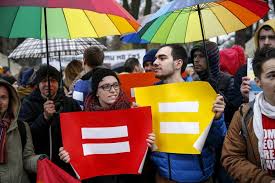
United Nations Fight Against LGBTQ Oppression
Gay, Straight, Black, White: Love is Love, Right is
Right
CNN: What You Need to Know About the Gay Rights Movement
Negative Attitudes Toward LGBTQ People
NPR: Discrimination Compounds for LGBTQ
People of Color
USA Today: Review of LGBTQ Equality Over
the Past Decade
John Oliver: LGBTQ Discrimination
Preschool Twins Fighting Discrimination
United Nations: Universal Declaration of
Human Rights
ENDA: Employment Non-Discrimination Act
Countries Where Homosexuality is Punishable by Death

HOME
QUEER CAFE
│ LGBTQ Information Network │ Established 2017
|